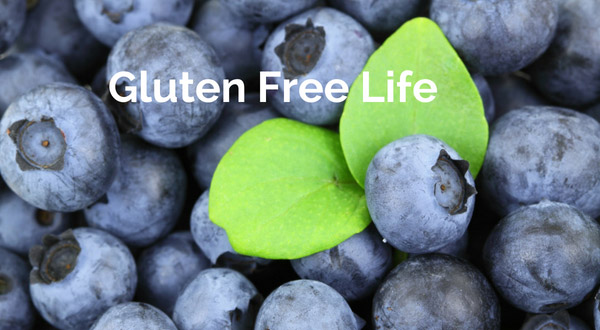In some ways, that is true. A gluten allergy is essentially an auto-immune condition. Your body responds to the consumption of gluten by attacking the finger-like villi in your small intestine. These villi are important to your body’s ability to absorb nutrients. When they die off, they reduce the amount of important nutrients you’re getting, causing numerous symptoms, including chronic digestive issues, fatigue, and much more. For children and women trying to conceive, or who are already pregnant, malnutrition can be a very serious issue.
The best way to stop this? Adopt a gluten-free diet. In fact, it is the only way to really combat a gluten allergy. There are no pills you can take, no treatments or surgery that will make it better. If you have a gluten allergy, the only way to feel better is to start living gluten-free.
This can be a challenge because so many foods contain gluten. Gluten is the protein in wheat and other grains that give dough its stickiness. It’s found in bread products and many other things besides, including processed cheese and all kinds of sauces, even. Most beer and other kinds of alcohol contain gluten, as well. Giving up gluten is going to require some major changes to your diet.
However, the results of these changes will make it well worth the time, effort, and sacrifice. Once you have gotten rid of gluten in your diet, your body will begin to heal. The damage inflicted to your intestinal villi isn’t permanent. With the right nutrient supplements and the end of the immune system’s assault, those villi will begin to heal and your body will resume absorbing nutrients like it should. With these nutrients, your body will begin to function the way it should.
Thanks to this nutrients absorption, you’ll start to notice that you have more energy. One of the most common symptoms of gluten allergy, chronic indigestion, will likely stop altogether. There’s a whole host of other symptoms, from migraines to rash-like skin conditions that, are probably going to vanish or at least become better once you go gluten-free. Gluten allergies are linked to more serious conditions, especially other auto-immune conditions, and starting a gluten-free diet can help prevent the onset of these serious issues.
For children who are allergic to gluten, going gluten-free can mean that their growth begins to get back on track. Good nutrition is incredibly important to growing children. It affects their height, the density of their bones, and even their ability to learn. Kids with gluten allergies often have issues with all these things and tend to develop even worse gastrointestinal issues than adults. Once they start living gluten-free, however, these issues will start to get better. If your child has a gluten allergy, get them on a gluten-free diet as soon as possible to help them get a healthy start on life.
Having a gluten allergy can even affect fertility in women. If you are having trouble having a baby, go to your doctor to see if you have a gluten allergy. If you learn you do, adopting a gluten-free diet may help you grow your family. The tests are simple and only require a small blood sample. You should have the results back in a few days. There are rarely false positive or false negatives, so you can generally start working with your doctor to develop the diet you need to help treat your gluten allergy.
What is living gluten-free like? Will it mean you have to give up all your favorite foods? That’s the fear many people have when they start on a gluten-free diet.
Well, there are a lot of gluten-free alternatives out there these days as more and more people become aware of gluten allergies. Gluten isn’t as necessary an ingredient in many foods as it was in the past thanks to a lot of technological developments and whole new ways of thinking.
Now, the honest truth is there are some foods you’ll never be able to eat again. This can be really hard. In some cases, these may some of your favorite foods. While sometimes there are gluten-free versions of these foods, Gluten-free alternatives may be hard to find in your area or may not exist at all (yet). But even items long thought as needing gluten, like pasta, now have gluten-free versions you can enjoy.
Gluten-free versions of food don’t necessarily taste the same, but even if you don’t; like the change, try something entirely new. This is a chance to explore new horizons of great food, much of it from other cultures. There are also many other people out there who want to live gluten-free lives and they are constantly looking for new gluten-free recipes and even restraint dishes. Just take a look online to see what you can find that you wouldn’t have thought to try before.
If you’re worried about eating out, more and more restaurants are offering gluten-free menus. Often there are food items that list their gluten-free status as a part of their description. No business ever turned away a chance to make money, so more and more of them are offering gluten-free selections.
There are even gluten-free craft beers out there! Being gluten-free doesn’t mean you have to stop going out or stop being fun. There are also many desserts you can eat when you’re on a gluten-free diet. A lot of ice cream is gluten-free, for instance. Your sweet tooth doesn’t have to go hungry when you’re living gluten-free.
Going gluten-free is going to make you feel better. It’s going to help you enjoy your life more. While it does mean making a radical change in your diet in most cases, it is also a chance to try new things and be a part of a community that is constantly thinking of new ideas for great gluten-free food.

